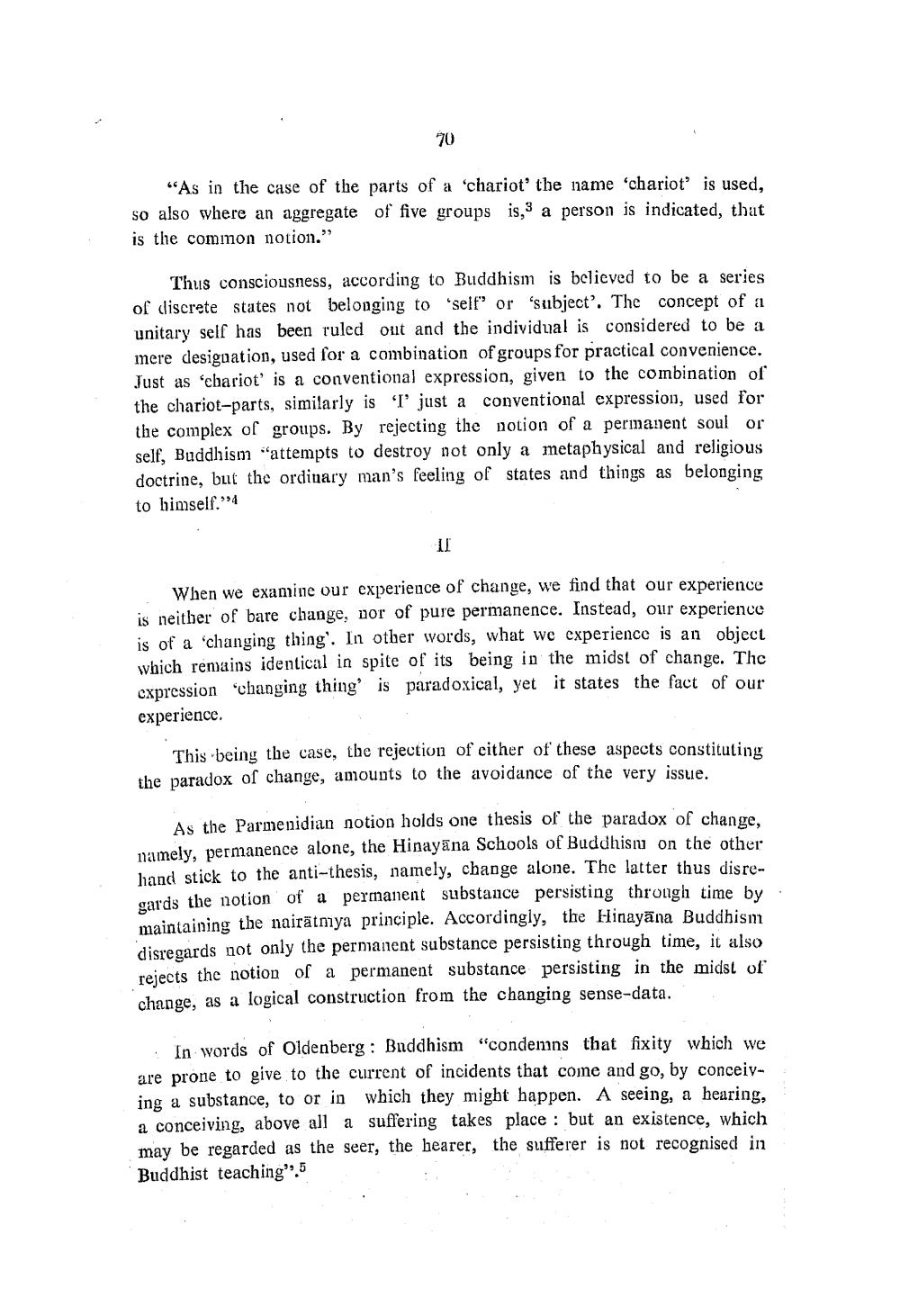________________
70
"As in the case of the parts of a 'chariot' the name 'chariot' is used, so also where an aggregate of five groups is,3 a person is indicated, that is the common notion."
Thus consciousness, according to Buddhism is believed to be a series of discrete states not belonging to 'self" or 'subject. The concept of a unitary self has been ruled out and the individual is considered to be a mere desiguation, used for a combination of groups for practical convenience. Just as "chariot' is a conventional expression, given to the combination of the chariot-parts, similarly is T just a conventional expression, used for the complex of groups. By rejecting the notion of a permanent soul or self, Buddhism "attempts to destroy not only a metaphysical and religious doctrine, but the ordinary man's feeling of states and things as belonging to himself.”4
When we examine our experience of change, we find that our experience is neither of bare change, vor of pure permanence. Instead, our experience is of a changing thing'. In other words, what we experience is an object which remains identical in spite of its being in the midst of change. The expression changing thing' is paradoxical, yet it states the fact of our experience.
This being the case, the rejection of either of these aspects constituting the paradox of change, amounts to the avoidance of the very issue.
As the Parmenidian notion holds one thesis of the paradox of change. namely, permanence alone, the Hinayāna Schools of Buddhistu on the other hand stick to the anti-thesis, namely, change alone. The latter thus disregards the notion of a permanent substance persisting through time by maintaining the nairātnya principle. Accordingly, the Hinayāna Buddhism disregards not only the permanent substance persisting through time, it also rejects the notion of a permanent substance persisting in the midst of change, as a logical construction from the changing sense-data.
In words of Oldenberg : Buddhism "condemns that fixity which we are prone to give to the current of incidents that come and go, by conceiving a substance, to or in which they might happen. A seeing, a hearing, a conceiving, above all a suffering takes place : but an existence, which may be regarded as the seer, the hearer, the sufferer is not recognised in Buddhist teaching”.5




